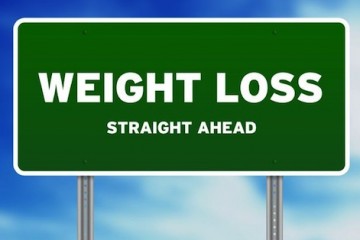Weight loss for Women over 40

Weight loss for women over 40 is very challenging. It is very common for women who go through menopause to have weight fluctuations. This is due to the changes in hormones such as oestrogen, and progesterone which influence metabolism, weight loss rate and appetite. Read 7 weight loss tips that work.
Question:
I am over 40 and menopausal. I am doing everything “right” in order to maintain a healthy weight; however, I am finding myself gaining weight instead. I use a stationary bike, elliptical machine and swimming. I eat right and get plenty of rest; yet in the past 6 to 8 months I have put on roughly 12 pounds. By military height and weight standards I am currently 17 pounds overweight. How do I reverse this trend?
Dear Stephanie,
Thank you for your question. I am providing this answer in consultation with Dr Slee. It is very common for women who go through menopause to have weight fluctuations. This is due to the changes in hormones such as oestrogen, and progesterone which influence metabolism and appetite. My first suggestion would be to consult your doctor about your concerns and if possible to look/investigate the profile of your hormone levels. The doctor should be able to consult you about different options available for menopause.
I’m afraid there is not a miracle diet or answer for this one. However, I have the following suggestions which may helpI would recommend to spend a week keeping a food and activities (i.e. exercise) diary to have a full picture of what you are eating etc. I know you say that you eat ‘right’ but having a full picture of what you eat and when, does help in finding things which you can avoid or didn’t realise were there. You can see some of my previous answers such as ‘How can I lose weight I have gained quickly’ for more information. Also apart from going through menopause try to see what may have changed for the last 6-8 months in which you have put on weight. Have your habits changed, or have you been under a lot of stress? Sometimes is the combination of things which may lead to weight gain.
- Try cutting down on carbohydrates and sugar. Some studies suggest that some women may be more sensitive to sugars during menopause. Try cutting down on your carbohydrate intake for 2 weeks and see if it does affect your appetite and weight. It will take 2 weeks for any significant adaptations or changes to take place. It is important to keep some carbohydrates in your diet especially if you are doing exercise. An easy way to lower carbohydrates is to avoid or minimize bread, potatoes, rice and pasta, and have instead loads of vegetables, high fibre foods and fruits. Be more careful with fruits as some can contain a lot of sugar, such as bananas. Also avoid sugary drinks, takeaways, processed foods, juices too many sugary coffees, too much alcohol etc. You can also see my article on healthy weight loss about more ways on how to cut down on carbohydrates in a healthy way.
- Unfortunately with hormonal issues such as menopause there is not always a way to avoid putting on weight. It can be different for each person. It may be the case that you need to be stricter with your diet all together. For example if you had a treat i.e. a takeaway once a week, it may be that it will need to be once a fortnight or once a month. However, DO NOT follow very low fat diets or restrict your calories very low. They will not actually benefit in this situation. Some studies indicate that primrose oil and fats such as fish oils may be of benefit. Fats can also be beneficial in terms of steroidical hormones such as oestrogen and progesterone. Do avoid unhealthy fats such as trans fats which are found in margarines, hydrogenated oils, fried foods, processed food etc. See also ‘Why lose weight and how to do it correctly’ for more information.
- I would not recommend that you lower your calories too low. If the underlying reason for weight gain is hormonal then you could do more harm than help to your body. By keeping a diary of food and activities you can roughly calculate how many calories you are consuming. Remember to include coffees, juices etc. Also calculate how many calories you burn with exercise and physical activities. Your calculations don’t need to be down to the last calorie but a rough estimation. This way you can see how many calories you are consuming and how many you could possibly cut down without going to low. For example if you have 2 coffees per day with 1 sugar each, maybe you could cut it down to 1 coffee with no sugar or half a sugar. If you are having sandwiches for lunch try replacing them with a meat/fish salad which you prepared. Overall you may decrease your intake by 200 calories but it will be in a healthier way. I must say do not over consume yourself with calories. As I have said before calories are not the means to all ends.
- Try strength exercises as well. Strength exercises help to keep on muscle which means you could burn more calories. The muscles become more efficient and burn fat more and also it can increase your resting metabolic rate (the rate in which you burn energy when you are resting).
- In my articles I have summarized tips on healthy eating and weight loss diets such as having a delayed protein breakfast. You can incorporate some of these tips in your diet and see if it has helped in sustaining your weight (as in not gaining any more) or even losing some.
-
Dangers of loss surgery
I want to write about the dangers of loss surgery. Have you dec
-
Shed Those Pounds With These Weight Loss Tips
Weight loss is a topic that is often addressed wrong. Everywhere you
-
Healthy Diet Is A Key To Healthy Weight Loss
Since ages, there exists a thinking in the minds of people that losin
-
Learn How Fast Weight Loss Really Works
Our way of life has given rise to many problems that need to be addre
-
Lose Weight And Grow Your Management Consultancy Business - How?
Want to lose weight as a busy Management Consultant, but not sure whe
-
Weight Loss tip #106 — Eat in smaller plates
- DON'T MISS
- How to Help Your Dog Lose Weight
- How To Lose Those Extra Pounds For Your Wedding Day?
- Losing Weight Through Tried And True Advice
- 10 Day Cleanse
- Foods to help you lose weight
- The Truth About Belly Fat And How To Get Rid Of It
- How to Fast to Lose Weight
- Weight Loss Tip #31 – Lose weight with Zumba!
- Methods For Reducing Your Weight Easier
- How To Lose Weight And Perfect Natural Herbal Remedies For Weight Loss Or Obesity




